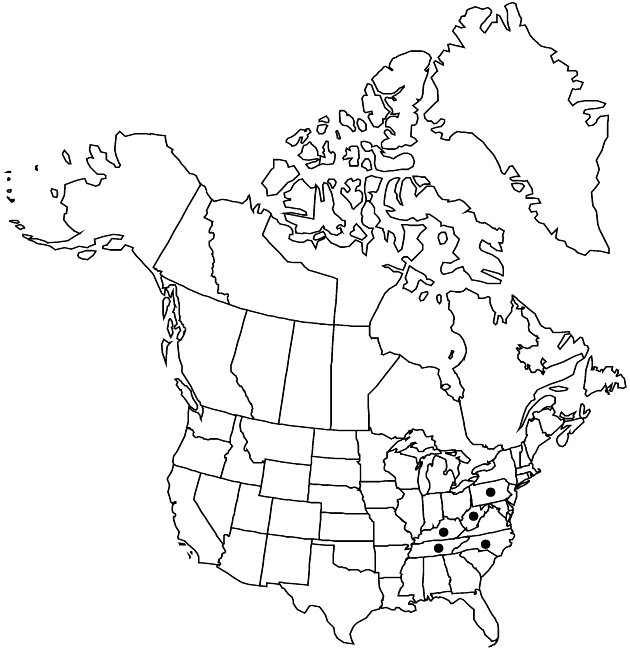Difference between revisions of "Marshallia grandiflora"
Biltmore Bot. Stud. 1: 7, plate 1. 1901.
Treatment appears in FNA Volume 21. Treatment on page 457.
FNA>Volume Importer |
FNA>Volume Importer |
||
| Line 24: | Line 24: | ||
|distribution=Ky.;N.C.;Pa.;Tenn.;W.Va. | |distribution=Ky.;N.C.;Pa.;Tenn.;W.Va. | ||
|discussion=<p>Of conservation concern.</p><!-- | |discussion=<p>Of conservation concern.</p><!-- | ||
| − | --><p>Marshallia grandiflora grows in the Appalachian Mountains. It is in the Center for Plant Conservation’s National Collection of Endangered Plants.</p> | + | --><p><i>Marshallia grandiflora</i> grows in the Appalachian Mountains. It is in the Center for Plant Conservation’s National Collection of Endangered Plants.</p> |
|tables= | |tables= | ||
|references= | |references= | ||
| Line 48: | Line 48: | ||
|publication year=1901 | |publication year=1901 | ||
|special status= | |special status= | ||
| − | |source xml=https://jpend@bitbucket.org/aafc-mbb/fna-data-curation.git/src/ | + | |source xml=https://jpend@bitbucket.org/aafc-mbb/fna-data-curation.git/src/8f726806613d60c220dc4493de13607dd3150896/coarse_grained_fna_xml/V19-20-21/V21_1148.xml |
|tribe=Asteraceae tribe Heliantheae | |tribe=Asteraceae tribe Heliantheae | ||
|subtribe=Asteraceae (tribe Heliantheae) subtribe Marshalliinae | |subtribe=Asteraceae (tribe Heliantheae) subtribe Marshalliinae | ||
Revision as of 15:30, 18 September 2019
Plants 20–90 cm. Leaves mostly basal; basal petiolate (distal sessile, reduced); blades 3-nerved, ± elliptic, broadly oblanceolate, or spatulate, 12–25 cm × 14–19 mm. Heads 1–2, 26–45 mm diam. Peduncles 10–20 cm. Phyllaries 8–11 × 2–4 mm, apices acute. Paleae ± linear, apices acute. Corollas pink, lobes 3–7 × 0.5–0.8 mm. Pappi: scale margins serrulate. 2n = 18.
Phenology: Flowering May–Jun.
Habitat: Stream banks, gravel bars
Elevation: 500–1500 m
Distribution

Ky., N.C., Pa., Tenn., W.Va.
Discussion
Of conservation concern.
Marshallia grandiflora grows in the Appalachian Mountains. It is in the Center for Plant Conservation’s National Collection of Endangered Plants.
Selected References
None.
Lower Taxa
None.